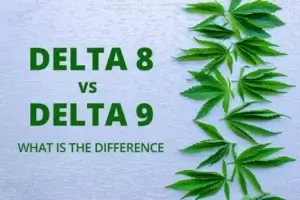Cannabis in Morocco, Nestled between the Mediterranean Sea and the Sahara Desert, Morocco presents a compelling narrative in the global saga of cannabis. Renowned for its captivating landscapes, rich cultural heritage, and the production of a significant portion of the world’s cannabis resin or ‘hashish,’ Morocco’s relationship with cannabis is as complex as it is intriguing.
The Seeds of History: Cannabis in the Moroccan Past
The origins of cannabis in Morocco trace back to the 7th century when the Arab invasions brought the plant into the region. However, it was not until the 15th century that cannabis cultivation took root in the Rif Mountains, where the unique microclimate made it an ideal environment for cannabis growth.
Over the centuries, cannabis became an integral part of the local economy and culture in the Rif region. It was used for medicinal purposes, while its seeds served as a food source, and its fibers were utilized in crafting tools and materials.
The Green Gold: Cannabis as a Cornerstone of Morocco’s Informal Economy
Fast forward to modern times, Morocco has emerged as one of the world’s leading producers of cannabis resin, also known as ‘hashish’ or ‘chira’ locally. Despite the strict laws prohibiting cannabis cultivation, vast fields of green cannabis plants undulate across the Rif Mountains, providing a lifeline for the local farmers who depend on the illicit crop to make a living.
The vast production of cannabis in Morocco fuels a thriving but illicit economy. It’s estimated that cannabis cultivation supports up to 800,000 Moroccans, primarily in the economically marginalized Rif region. Despite its illegal status, cannabis is often referred to as Morocco’s ‘green gold,’ signifying its economic importance.
The Iron Fist: Morocco’s Cannabis Laws and Policies
In line with international drug control conventions, Moroccan law prohibits the cultivation, sale, and possession of cannabis. These offenses can lead to severe punishments, including hefty fines and imprisonment. However, the enforcement of these laws is uneven and often influenced by socio-economic and political considerations.
Despite the legal prohibitions, the Moroccan government has periodically turned a blind eye to cannabis cultivation, primarily in the Rif region, due to the lack of alternative livelihoods for local communities and the potential socio-political unrest that a strict enforcement could provoke.
A Cultural Dichotomy: Society’s Perception of Cannabis in Morocco
The societal perceptions of cannabis in Morocco are as diverse as the country’s landscapes. While cannabis use is widespread, particularly in the form of hashish, it’s often associated with stigma and considered a social vice.
However, in the Rif region, where cannabis cultivation is deeply ingrained in the local economy and culture, the plant is viewed in a more pragmatic light. For many families in the Rif, cannabis is seen as a means to survival, underscoring the cultural and economic complexities that frame Morocco’s relationship with cannabis.
The Crossroads of Change: Future Prospects for Cannabis in Morocco
As global attitudes towards cannabis shift, with an increasing emphasis on its medicinal and economic potential, Morocco finds itself at a crossroads. In recent years, there have been increasing discussions about legalizing the cultivation of cannabis for medical and industrial use, aimed at harnessing the economic potential of the plant while alleviating the hardships faced by the cannabis farming communities.
In 2021, Morocco passed a historic law legalizing the medical use of cannabis, a landmark move aimed at capitalizing on the booming global cannabis market and improving the livelihoods of farmers in the Rif region. Despite this, recreational use remains illegal and heavily stigmatized.
Morocco’s relationship with cannabis is a multifaceted tale that navigates through the winds of history, the currents of economics, the contours of law, and the societal perceptions. As Morocco grapples with its future course on cannabis, the narrative underscores the complexities inherent in aligning historical realities, economic necessities, and evolving global trends in the context of cannabis policy. This interplay of factors ensures Morocco’s place in the spotlight of the global cannabis discourse.






